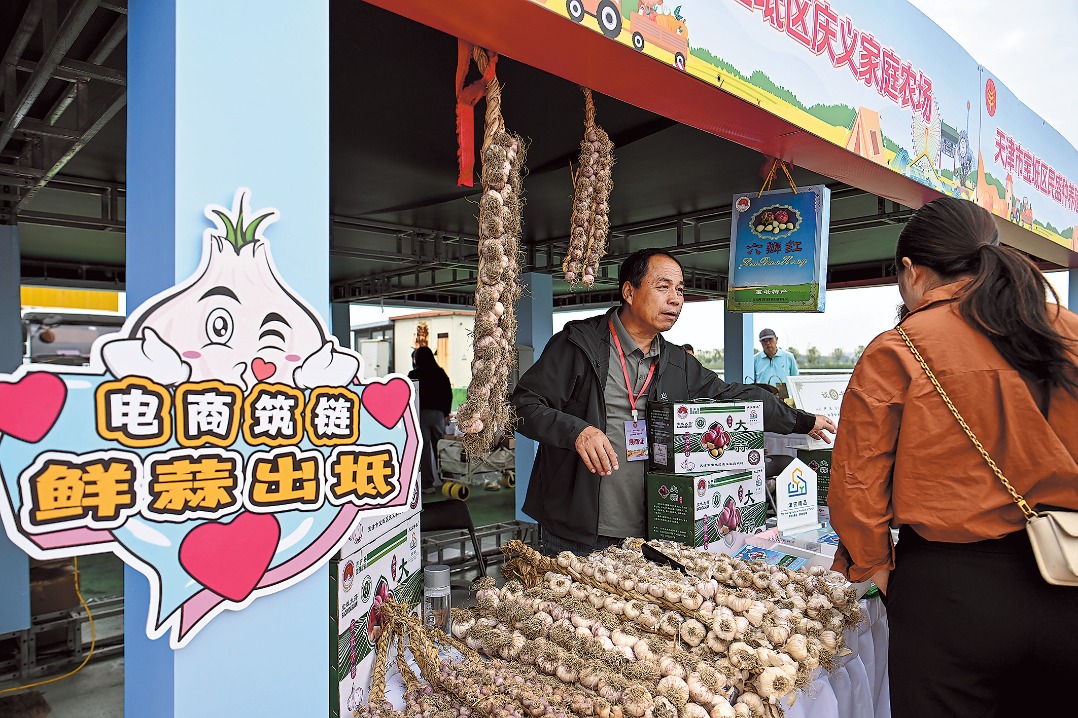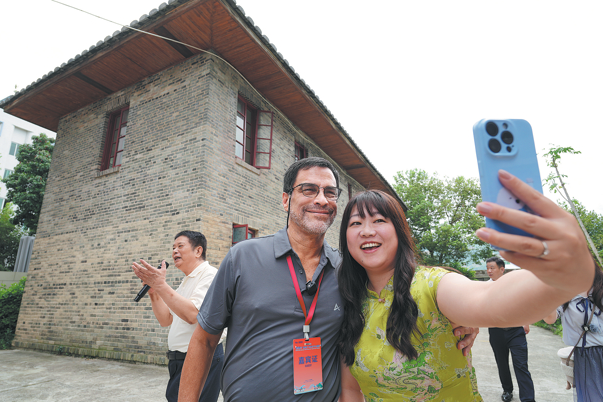Tech startups try to change African healthcare
By Lucie Morangi in Nairobi, Kenya | China Daily | Updated: 2019-08-01 10:25

Benin platform makes patient histories readily accessible, KEA founder says
Three years ago, a patient died following an allergic reaction from antibiotics administered by a 25-year old Beninese doctor, Arielle Ahouansou. It then dawned on Ahouansou that knowing the patient's medical history might have improved the outcome and informed her decision. She decided to develop a solution that would make critical medical information readily accessible to doctors.
With a seed capital of $1,000, in 2017 she founded KEA Medicals, a platform where a patient's medical data is interfaced with hospitals' systems using a digital identification code. Patients create a personal identity using their mobile phones and doctors can then input information about pertaining to a patient's allergies, chronic diseases, blood type and contact person during hospital visits.
This was among inventions by young people that were showcased during the first Africa Business: Health Forum, held at the sidelines of Africa Union Summit in Ethiopia early this year. The event brought together government leaders, entrepreneurs and international health organizations to discuss how technology can lower costs as universal healthcare is scaled up in Africa.
Africa has a health financing gap of $66 billion per annum and accounts for less than 2 percent of the nearly $9.7 trillion spent globally, according to World Health Organization. The continent accounts for 16 percent of the global population and 26 percent of the disease burden.
Following underinvestment in the sector occasioned by competing priorities and donor fatigue, millions of Africans are inadvertently pushed into poverty by high medical bills. Africans pay about 36 percent of total healthcare expenditure from their pockets, according to the UN Economic Commission of Africa, or UNECA.
African governments are betting on technology to accelerate equitable access to quality healthcare while addressing costs. By embracing the KEA Medical platform, Benin has driven the uptake. Eight months since its launch, more than 72,000 people and 10 hospitals in the country are using the platform, said KEA founder Ahouansou.
She explained that by registering in the platform, a universal medical identity in the form of a QR code is generated, which is then imprinted in bracelets, or patches that cost $4 and $2, respectively. Doctors can then scan and access patient's medical history.
The solution saves 40 percent of doctors' time, safeguards patients' healthcare, makes hospitals 40 percent more efficient and cuts down 20 percent of insurance costs, she said.
"It provides a low-cost solution for Africa to cut down on healthcare costs while enhancing quality of healthcare," Ahouansou said. "It can be used anywhere and so we are looking at reaching Cote d'Ivoire and Senegalese markets."
The health forum in Ethiopia sought to promote public-private partnerships. With a booming population growth, Africa's health market is estimated to be $259 billion. It will be the second largest after the United States in 2030, estimates UNECA.
Adama Kane, founder of JokkoSante, a Senegalese tech company, has developed a solution that would enable people to return unused medicines and help them purchase urgently needed drugs at a subsidized rate.
Underpinned by the slogan, "One man's trash is another man's treasure", the platform enables people to earn points from returned drugs, which they can redeem in their next purchase of drugs. It has netted pharmacists, international organizations and the community to make medicine affordable and accessible.
"About 80 percent of Senegalese do not have health insurance. The situation is compounded by having some medicine not being used and ultimately expired. This is expensive for low-income families," said Kane.
Success at home has fueled the desire for JokkoSante to reach 40 African countries by 2030 and manage 15 percent of health payments in pharmacies. "The pilot project is already tried and tested. It is ready for launch," Kane added.
























